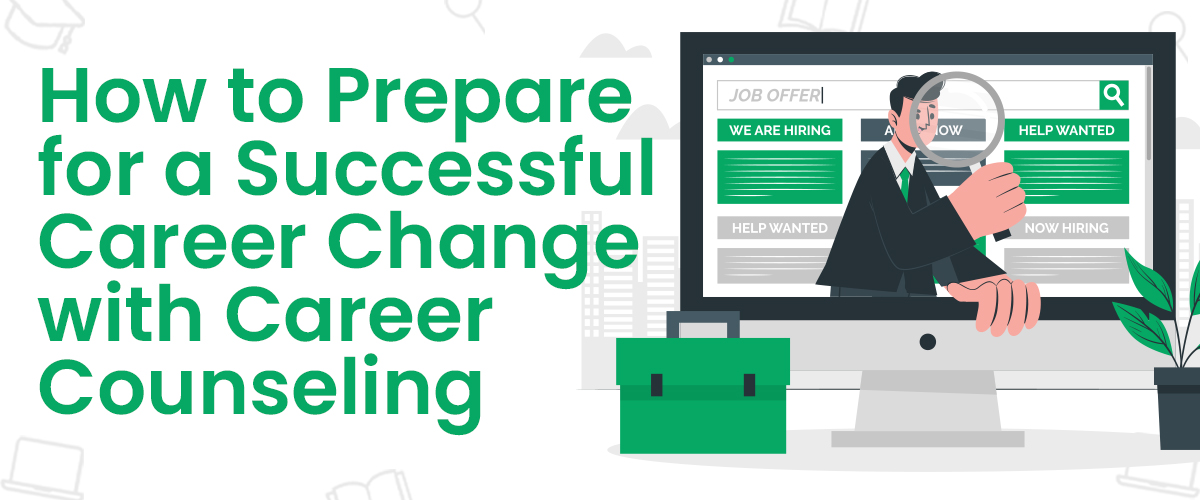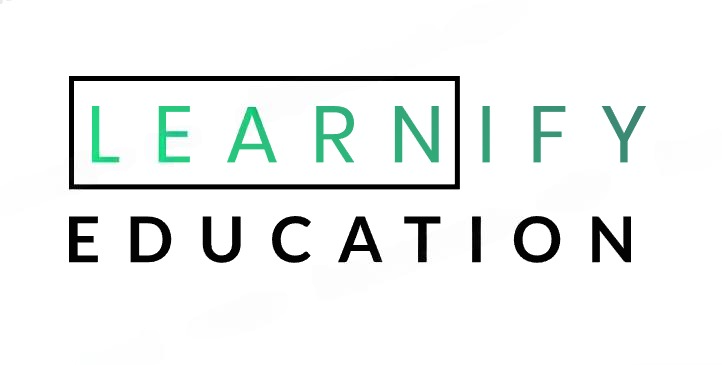











Compare India's leading
universities on a single platform
within two minutes.
- Online MBA for job professionals 100 + Universities
- 30X comparison factors
- Free expert consultation
- Quick Loan facility
- Post Admission Support
- Learnify Exclusive Community
- Job + Internship Portal
How to Prepare for a Successful Career Change with Career Counseling
- No-Cost EMI From ₹5100/-
- Subsidy Available upto ₹20,000/-

Changing careers can feel like stepping into the unknown. Whether you’re looking to shift industries, change job roles, or find more personal fulfillment, a successful career transition requires careful planning and guidance. One of the most effective ways to navigate this complex journey is by seeking career counseling. Here’s how career counseling can help you prepare for a successful career change, step by step.
1. Assess Your Current Skills and Interests
Before diving into the process of switching careers, it’s essential to understand where you stand. A career counselor can help you identify your existing skills, strengths, and personal interests. By analyzing these aspects, they can guide you to determine which career path aligns with your aspirations. This step ensures you’re not just looking for a job, but seeking a role that brings satisfaction and growth opportunities.
Actionable Tip:
Start by reflecting on what you enjoy most about your current job and what you’re passionate about. List down skills you’ve developed over the years and think about how they could apply to a different industry or role.
2. Explore Career Options Based on Your Strengths
A career counselor provides expert insights into various career options based on your transferable skills. Often, professionals don’t realize that their existing capabilities can apply to entirely different industries or roles. For instance, if you have experience in project management, you might find that your skills are highly transferable to consulting, marketing, or tech project management roles.
Actionable Tip:
With the help of your counselor, explore different career fields that could benefit from your current expertise. Research industries with job opportunities that align with your transferable skills.
3. Create a Tailored Career Plan
Career counseling helps you create a personalized plan for your career change. This plan should outline the steps you need to take to reach your new professional goal. It will involve setting short-term and long-term objectives, such as gaining new qualifications, certifications, or relevant experience. A counselor will also guide you on how to strategically position yourself in the job market, making your transition as smooth as possible.
Actionable Tip:
Set clear, measurable goals for your career change. This could involve learning a new skill, building a portfolio, or networking with professionals in your desired field.
4. Build a Strong Resume and LinkedIn Profile
An essential component of a successful career change is a well-crafted resume and LinkedIn profile that highlights your transferable skills and relevant experiences. Career counselors can help you restructure your resume and profile to make them appealing to potential employers in your new industry. By focusing on accomplishments and skills instead of job titles, you can present yourself as a valuable candidate ready to take on new challenges.
Actionable Tip:
Tailor your resume for each role you apply to, focusing on skills that are transferable. Ensure your LinkedIn profile clearly communicates your career change and the value you bring.
5. Expand Your Network in the New Field
Networking plays a crucial role in any career change. Your career counselor can provide strategies to expand your professional network, specifically in your desired industry. This could involve attending networking events, joining industry groups, and connecting with influencers on LinkedIn. A strong network can help you discover job opportunities, learn from others’ experiences, and gain valuable industry insights.
Actionable Tip:
Attend webinars, conferences, and workshops in your new field. Reach out to professionals on LinkedIn for informational interviews to gain a deeper understanding of the industry.
6. Prepare for Interviews with a Strong Narrative
When making a career change, you will likely face questions from employers about your background and why you’re transitioning. A career counselor can help you craft a compelling story that ties your past experiences to your future goals. A clear, confident narrative will help you stand out in interviews and reassure hiring managers that you are the right fit for the role.
Actionable Tip:
Practice answering common interview questions with a focus on how your past experience prepares you for the challenges of your new role.
7. Stay Flexible and Open to New Opportunities
Career transitions often come with unexpected opportunities and challenges. A career counselor can help you stay open-minded during your journey, encouraging you to embrace new roles that may not be exactly what you had imagined but offer potential for growth. This flexibility can lead to unexpected success and fulfillment in your new career.
Actionable Tip:
Stay adaptable to new roles that might be a step in the right direction, even if they don’t align perfectly with your initial vision.
Conclusion: Make Your Career Change a Success with Expert Guidance
Changing careers can seem daunting, but with the right preparation and support, it is a very achievable goal. Career counseling helps you assess your skills, explore new career options, build a tailored plan, and increase your chances of landing your dream job. By working with a counselor, you can make your career change more strategic and fulfilling, ensuring a smooth transition into a new and exciting phase of your professional life.
Remember, your career change doesn’t have to be a leap into the unknown. With the right resources and guidance, you can confidently take the next step toward your new career.


